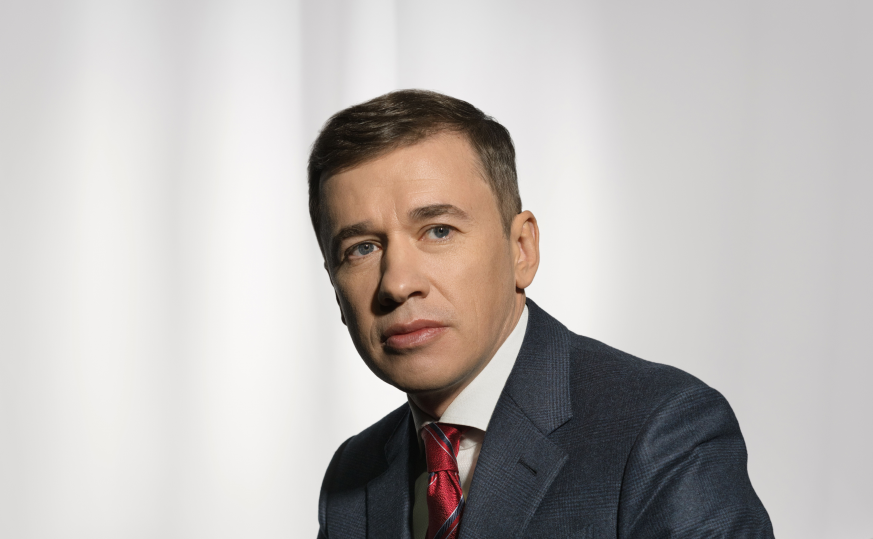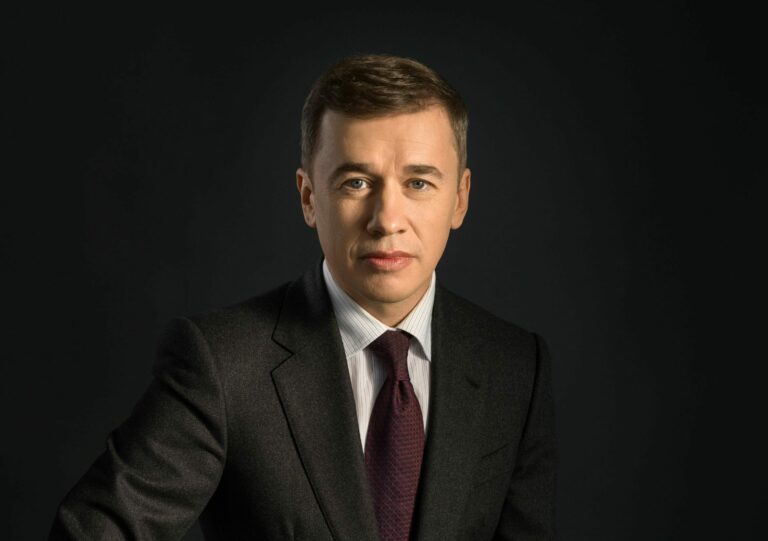Date of publication: 27 May 2024
Mikhail Ilyashev, Attorney at Law, Managing Partner, Honored Lawyer of Ukraine
Source: Business Ukraine
Interview: Ilyashev & Partners Managing Partner Mikhail Ilyashev on changes since 2022
How have the wartime conditions in Ukraine affected your work with international corporate clients?
At the very beginning of the full-scale invasion, the level of demand in the international corporate client segment at our law firm decreased significantly. But demand has subsequently recovered and we have managed to engage new global brands in cooperation.
In my opinion, the decisive factors for international companies when choosing a law firm are not only price and the availability of the relevant experience, but also network representation and the presence of qualified lawyers in person. This is a distinctive feature of our law firm. We require a physical presence from all our employees in offices around Ukraine except where there is a direct physical risk, as was the case during the first months of the war in Kyiv, for example.
Systematic business modeling, a network of representative offices outside of the capital, and the ability to promptly engage with the client’s tasks are all advantages that help to distinguish us on the Ukrainian legal services market.
How did the war affect the operations of your regional offices?
Our regional offices in Dnipro, Kharkiv, and Odesa currently have a one hundred percent workload. Our clients continue their work in Ukraine. More than ever, they require legal advice in order to resolve wartime challenges.
Business activity in each of Ukraine’s different regions has its own specifics. Over the past two years, we have noted that the top five most popular practice areas among clients of our offices in Kharkiv and Dnipro were Dispute Resolution, Taxation, Land, Criminal Law, and Energy and Natural Resources. In the Odesa Office, despite the maritime blockade and damage to port infrastructure, demand for legal services in the Customs Law and Maritime and River Shipping practice areas has increased.
How has your cooperation with humanitarian and charitable organizations developed since the beginning of Russia’s full-scale invasion in February 2022?
By 2022, we already had many years of experience providing legal advice to the Ukrainian Red Cross Society. Since the start of the full-scale invasion, the practice of supporting NGOs has become a separate area of work within our law firm.
We have the greatest respect for the mission of international humanitarian and charitable organizations in Ukraine and the emergency assistance they provide. The tasks they currently assign to lawyers are often non-standard, since they typically work in a rapidly evolving environment that nobody could have foreseen. We enjoy the challenge of finding effective solutions to complex cases. As a result, our role in this area goes far beyond ordinary consulting work.
Working with NGOs requires the special legal examination of documents. We have a team of subject-matter experts assigned to such clients. We register foreign NGOs and enable them to implement projects in Ukraine, and provide support for a full range of activities related to programs in Kyiv and different regions throughout the country. Following an initial “surge” in registration requests, we have noted an increase in demand for legal advice on local employment, various state inspections, taxation, and contractual matters. Current projects we are engaged in include internal policies for the Mobile Health Units program, through which the Ukrainian Red Cross Society provides primary medical care to the Ukrainian population in areas most affected by military operations and to those located in remote settlements. Since the onset of the full-scale invasion, the Ukrainian Red Cross Society’s Mobile Health Units have provided over half a million consultations. The involvement of medical personnel in the provision of medical care, purchasing medicines and their distribution to the population, processing and storing personal data about patients, and the cooperation framework in cases identifying signs of sexual and gender-based violence, are just a small part of the many issues we handle.
Your law firm actively cooperates with some leading sports organizations in Ukraine. A year ago, you were elected President of the Ukrainian Fencing Federation. How has Russia’s full-scale invasion affected this sector?
International sport has became yet another “battleground”. Ukraine is striving to prevent the return of athletes from aggressor countries (i.e. Russia and Belarus) to the global arena.
The Ukrainian Fencing Federation, which I was elected to lead a year ago, has brought several claims against the International Fencing Federation (FIE) and the Russian Fencing Federation which are pending before the Court of Arbitration for Sport (CAS) and the District Court of Lausanne. These claims concern the readmission of Russian and Belarusian athletes to international competitions as part of the qualification process for the 2024 Olympic Games.
In my opinion, the FIE is trying by all available means to delay this process so that it is not complete by the time of the Olympic Games Opening Ceremony this summer.
There are also some local victories to report. For instance, the European Fencing Confederation’s decision to suspend the membership of the Russian and Belarusian federations was procured. Meanwhile, some Russian athletes have already lost their neutral status.
Ukrainian fencing star Olga Kharlan attracted considerable praise and sparked controversy for refusing to shake hands with her Russian opponent during a competition in summer 2023. What is a legal position regarding such principled stances in international sports competitions?
In my opinion, the situation that arose with Kharlan was the result of a direct provocation on the part of the Russian athlete. This was deliberately done so that Kharlan would miss an opportunity to participate in the Olympic Games.
What else can be done to support Ukrainian sports stars such as Olga Kharlan and defend Ukraine’s national interests in the sporting arena during the war?
Broadly speaking, it is necessary to continue the legal struggle at the international level and seek the disqualification of Russian and Belarusian athletes, as well as the introduction of personal sanctions against them and other sports officials, even those located in third countries. People underestimate the importance of Ukrainian sanctions but such measures can become a major problem. Sanctions imposed by Ukraine can serve as a stigma that is visible wherever the sanctioned person goes. In this regard, the Ukrainian Parliament’s resolution, which called on countries to hold those responsible for the disqualification of Kharlan accountable for their actions, is an important tool that can help with the imposition of personal sanctions.
As President of the Ukrainian Fencing Federation, I intend to continue informing international organizations that it is unacceptable to allow Russian and Belarusian athletes to compete while the war continues.

